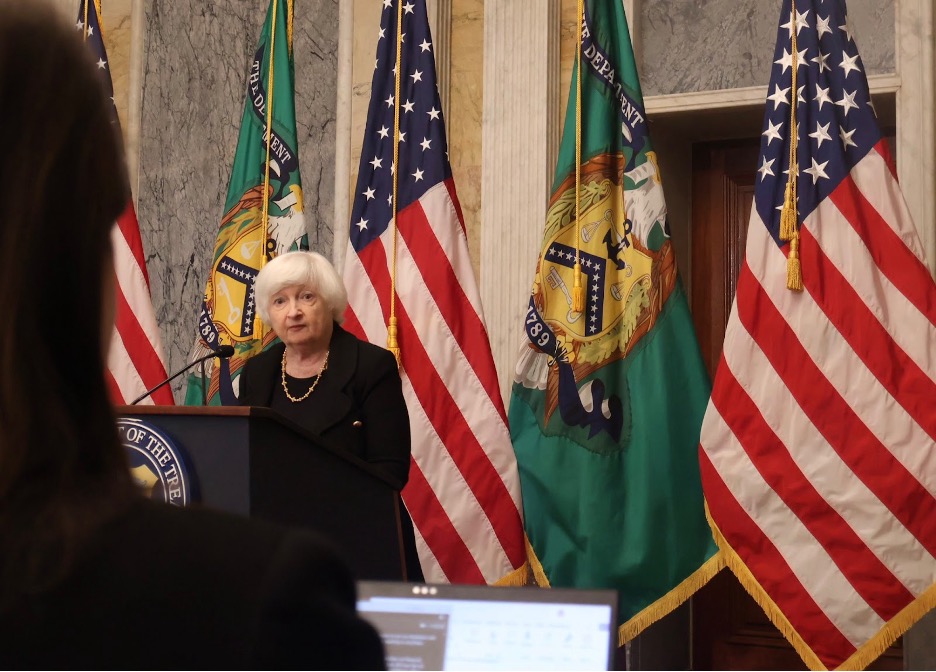WASHINGTON — Treasury Secretary Janet Yellen said that the U.S. is finalizing a $20 billion contribution to G7’s $50 billion loan to Ukraine in remarks on Tuesday.
“We’re 99% of the way there,” Yellen said at a Treasury press conference, starting off the World Bank and International Monetary Fund’s annual meetings this week.
“It’s nailing down just a couple of relatively small things,” she added
Yellen emphasized that financing these loans would not be coming out of the pockets of the “American taxpayer,” as the contribution will be repaid from the earnings on frozen Russian sovereign assets.
The loan package is seen as a key element of continued U.S. support for Ukraine as it faces the prolonged economic effects of the war with Russia. The deal is also likely facing internal pressure to be secured, as a victory by Republican presidential candidate Donald Trump in the Nov. 5 election would likely cause blockage.
Last week, Yellen stressed the importance of fostering healthy economic relations at the Council on Foreign Relations. She added that she did not condone the “calls for walling America off.” Rising geopolitical tensions, such as Russia’s invasion of Ukraine, meant that the U.S. cannot afford to abandon its allies or “go it alone.”
Trump has made his critique clear on sending aid to Kyiv and has indicated that he would like to see the U.S. “get out” of the war.
The announcement comes as the European Parliament approved the bloc’s plan earlier Tuesday to use frozen Russian assets to loan up to 35 billion euros, or 38 billion in U.S. dollars.
Yellen also added that the U.S. has pressed the EU for “stronger assurances” that the money will remain frozen for a long period, which would reduce any further risk of U.S. taxpayers repaying the loan.
Despite the EU needing bi-annual renewal of the frozen assets, Yellen said that she had a “high degree of confidence” that the money will remain in place.
“The idea that any member of the European Union would block a continuation of sanctions on Russia, that is something that is unthinkable,” Yellen said. “I think the assurances are already there.”
In recent months, the U.S. has strengthened designated sanctions that have had “significant effects” on their targets, including third-country entities and individuals linked to supplying Russian military inputs.
Yellen announced Tuesday that next week, the U.S. will further escalate its efforts by unveiling “strong new sanctions targeting those facilitating the Kremlin’s war machine.”
She also addressed concerns about potential impacts on oil prices, noting that sanctions against Russia and Iran have not caused price spikes. Many countries maintain significant “spare capacity” in oil production, which has kept global markets well-supplied despite geopolitical tensions.
When asked about the targets of these sanctions, Yellen declined to comment but emphasized that the U.S. should expect to see intermediaries to be designated.
The G-7 intends for the initial funds to reach Ukraine by the end of the year.


